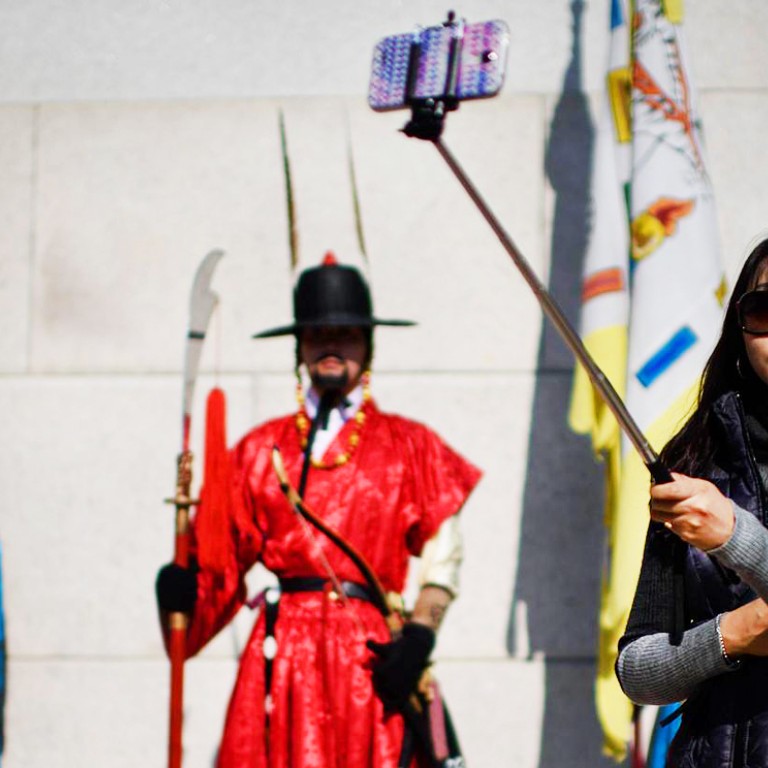
In South Korea, unregistered Bluetooth 'selfie sticks' could land the seller in prison
South Korea has stiff penalties for selling unregistered Bluetooth versions
Take care when brandishing a selfie stick in South Korea - it could land the person who sold it to you a three-year jail term.
Last week the country's science ministry announced new regulations targeting Bluetooth-enabled models that communicate remotely with smartphones to take photos.
Anyone selling an unregistered version could face a HK$27,000 fine or a stint in prison.
The problem, the ministry says, is that such gadgets are designated as communications equipment given their use of radio waves to provide a wireless link between separate devices. As such they have to be tested and certified to ensure they don't pose a disruption to other devices using the same radio frequency.
Luckily, the same rules do not apply in Hong Kong. A spokeswoman for the Office of the Communications Authority (OFCA) said: "Bluetooth radio devices are low-powered radio devices operating at specified frequency ranges. In general, it is unlikely that they would cause interference to other radio services.
"So far, OFCA has not received any reported case of radio interference caused by Bluetooth radio devices."
Regulating the sale of these small, articulated monopods designed for mobile phone wielding photographers won't be easy, given their numbers.
Hongkongers have been swept up in the gadget craze, with vendors in the Wan Chai Computer Centre selling Bluetooth models for as little as HK$69.
Professor Michael Cheng Kwok-keung, an expert in wireless communications at Chinese University, said the selfie stick's Bluetooth frequency spectrum (2.45 GHz) was shared by many other applications such as Wi-fi and some wireless controllers.
"As a result, they may interfere with each other and cause malfunction in equipment. To avoid the problem, there are regulations regarding the amount of radiated power," he said.
This radiation may not only interfere with other wireless devices, but with more substantial systems too.
"That's why such devices including mobile phones are usually banned in hospitals and on planes during take-off and landing in most countries," said Cheng.
Despite the warning of harsh penalties in Seoul, the crackdown appears to have been relatively low-key, with no mass police raids on unsuspecting selfie stick vendors.
"Selfie" was chosen as the Oxford Dictionaries' word of the year in 2013, and the term is believed to have been coined on an Australian online forum in 2002.

